Earth
Sign up for our newsletter
We summarize the week's scientific breakthroughs every Thursday.
-
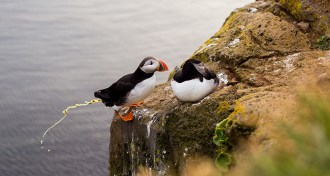 Climate
ClimateThere’s something cool about Arctic bird poop
Ammonia from seabird poop helps brighten clouds in the Arctic, slightly cooling the region’s climate.
-
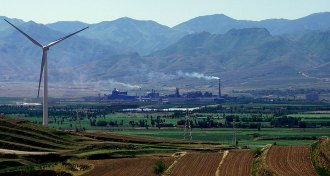 Climate
ClimateCO2 emissions stay steady for third consecutive year
Global emissions of carbon dioxide from human activities will probably see almost no increase in 2016 despite economic growth.
-
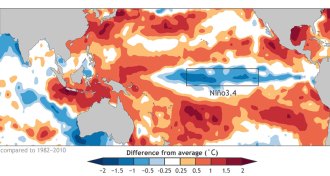 Climate
ClimateSay hola to La Niña
La Niña, El Niño’s meteorological sister, has officially taken over and could alter weather patterns throughout the world this winter.
-
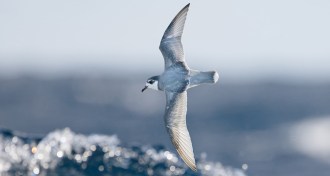 Environment
EnvironmentOcean plastic emits chemical that may trick seabirds into eating trash
Some seabirds might be eating plastic because it emits a chemical that smells like food.
-
 Environment
EnvironmentOcean plastic emits chemical that tricks seabirds into eating trash
Some seabirds might be eating plastic because it emits a chemical that smells like food.
-
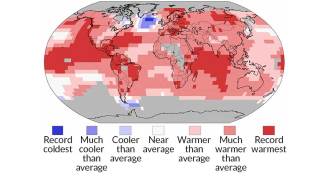 Climate
ClimateIf you thought 2015 was hot, just wait
The record-setting global temperatures seen in 2015 could be the “new normal” as soon as the 2020s.
-
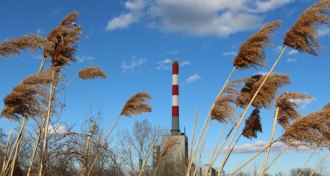 Climate
ClimateCO2-loving plants can counter human emissions
Plants temporarily halted the acceleration of rising carbon dioxide levels in the atmosphere, new research suggests.
-
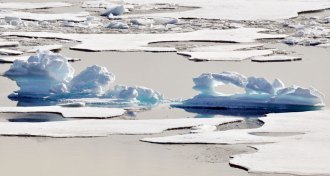 Climate
ClimateHuman CO2 emissions put Arctic on track to be ice-free by 2050
Sea ice is shrinking by about three square meters for each metric ton of carbon dioxide emitted, new research suggests.
-
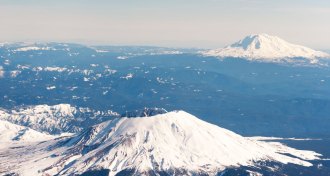 Earth
EarthMount St. Helens is a cold-hearted volcano
Geophysics reveals that deep beneath Mount St. Helens, there’s no source of hot magma, just a wedge of cold serpentinite rock. Where is the missing heat?
By Beth Geiger -
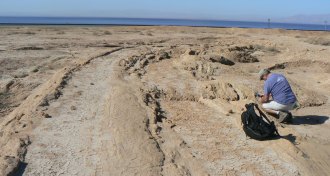 Earth
EarthThe southern San Andreas has a smaller, neighboring fault to its west
The newly-discovered Salton Trough Fault runs parallel to the southern San Andreas Fault in California, potentially affecting the region’s earthquake risk.
-
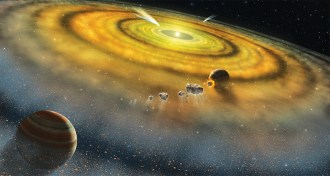 Earth
Earth‘A Most Improbable Journey’ offers scientific take on human history
Walter Alvarez’s “A Most Improbable Journey” gives readers a tour of “Big History,” linking human history to unpredictable cosmic, geologic and biological events.
-
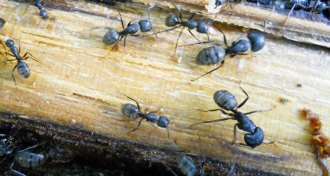 Climate
ClimateClimate change shifts how long ants hang on to coveted real estate
Simulated climate warming reveals a new pattern in turnover of ant nests.
By Susan Milius